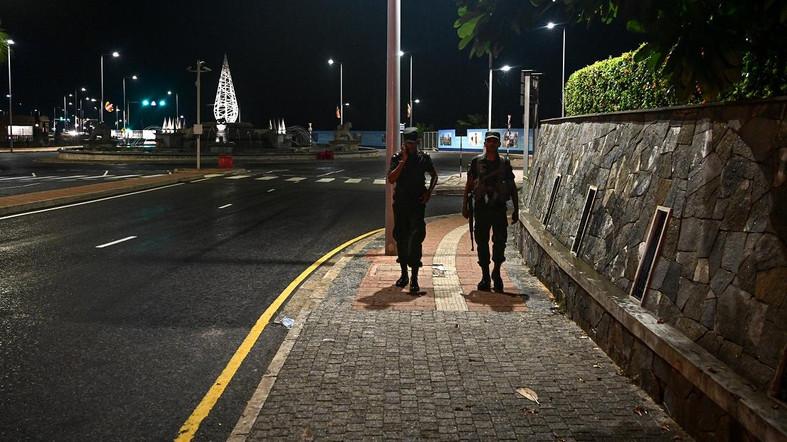curfew Impose on Sri Lankan town after mosques attacked
 COLOMBO : Sri Lanka imposed a nationwide night curfew Monday, after anti-Muslim riots spread to at least three districts just north of the capital in a violent new backlash against the Easter suicide bombings.
COLOMBO : Sri Lanka imposed a nationwide night curfew Monday, after anti-Muslim riots spread to at least three districts just north of the capital in a violent new backlash against the Easter suicide bombings.
Official sources said the curfew was aimed at preventing a further escalation of violence, but police would not say why it had been extended across the country of 21 million people.
The curfew was imposed after anti-Muslim riots spread to several districts just north of Colombo. Earlier, three districts were brought under curfew in response to mob attacks on several Muslim-owned businesses and mosques.
Police have imposed a curfew in the Sri Lankan town Chilaw after a dispute between Christians and Muslims, that began on Facebook, turned violent. Mobs threw stones at mosques and Muslim-owned stores on Sunday after residents believed a posting on the social media site was a threat to Christians.
Residents in the mainly Christian town 80km north of the capital Colombo, beat the man they believed was responsible for the Facebook post. Police said he had been arrested.
“A police curfew has been imposed in Chilaw Police area with immediate effect until 6am tomorrow to control the tense situation,” police spokesman Ruwan Gunasekera told the Reuters news agency. The police later said the curfew would be lifted at 4am local time (22:30 GMT on Sunday) on Monday. Sri Lankan troops had fired shots into the air to halt the violence.
According ton Sri Lanka police chief All suspects in blasts killed or arrested ‘Scared of the night’ . “They pelted stones at three mosques and some Muslim-owned shops. Now the situation has calmed down, but we are scared of the night,” one local Muslim man who asked to remain anonymous for security reasons, told Reuters. One mosque suffered extensive damage, he added.
Tensions have been running high after Muslim suicide bombers blew themselves up in three churches and four hotels on April 21, Easter Sunday, killing 257 people.
While the country’s acting police chief Chandana Wickramaratn said last week that all those involved in the attacks are either dead or in custody, some Sri Lankans are concerned there may still be attackers at large.
A week ago in Negombo, where more than 100 people were killed during Easter prayers, a violent clash erupted between local Muslims and Christians after a traffic dispute.Sri Lanka has been under a state of emergency since the suicide bombings. Security forces and police have been given sweeping powers to arrest and detain suspects for long periods.
One of the latest to be arrested was Mohamed Aliyar, Saudi-educated scholar. Police claim he had links with Zahran Hashim, the suspected ringleader of the bombings. “Information has been revealed that the suspect arrested had a close relationship with … Zahran and had been operating financial transactions,” said a police statement late on Friday. The statement said Aliyar was “involved” with training the group of suicide bombers in the southern town of Hambantota.
Prime Minister Ranil Wickremesinghe in a message appealed for people to remain calm and not to be swayed by false information. He said security forces are working tirelessly to ensure the security of the country but such civil unrest increases their burden and hamper ongoing investigations.
Parliament speaker Karu Jaysurya in a message said future of Sri Lanka will be decided by the way people behave in the next few days. He said if communal violence cannot be prevented, terrorists will be able to legitimize their crime, as they did in 1983.
Social media sites were blocked for the third time since Easter attacks for preventing rumours to spread. An area in Negombo faced similar attacks last week while several social media posts are in circulation calling for a boycott of Muslim businesses. (With Agency Inputs ).

